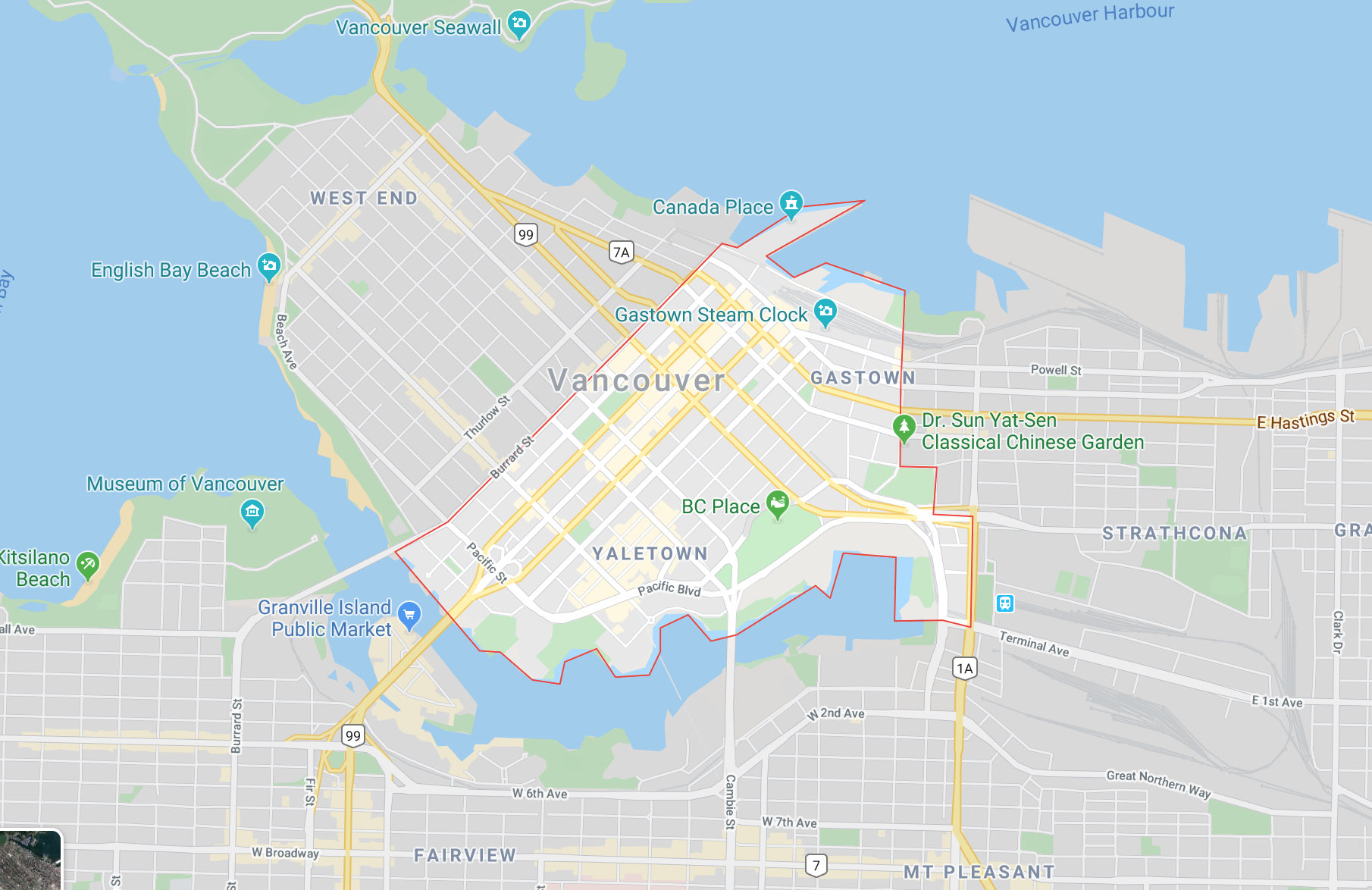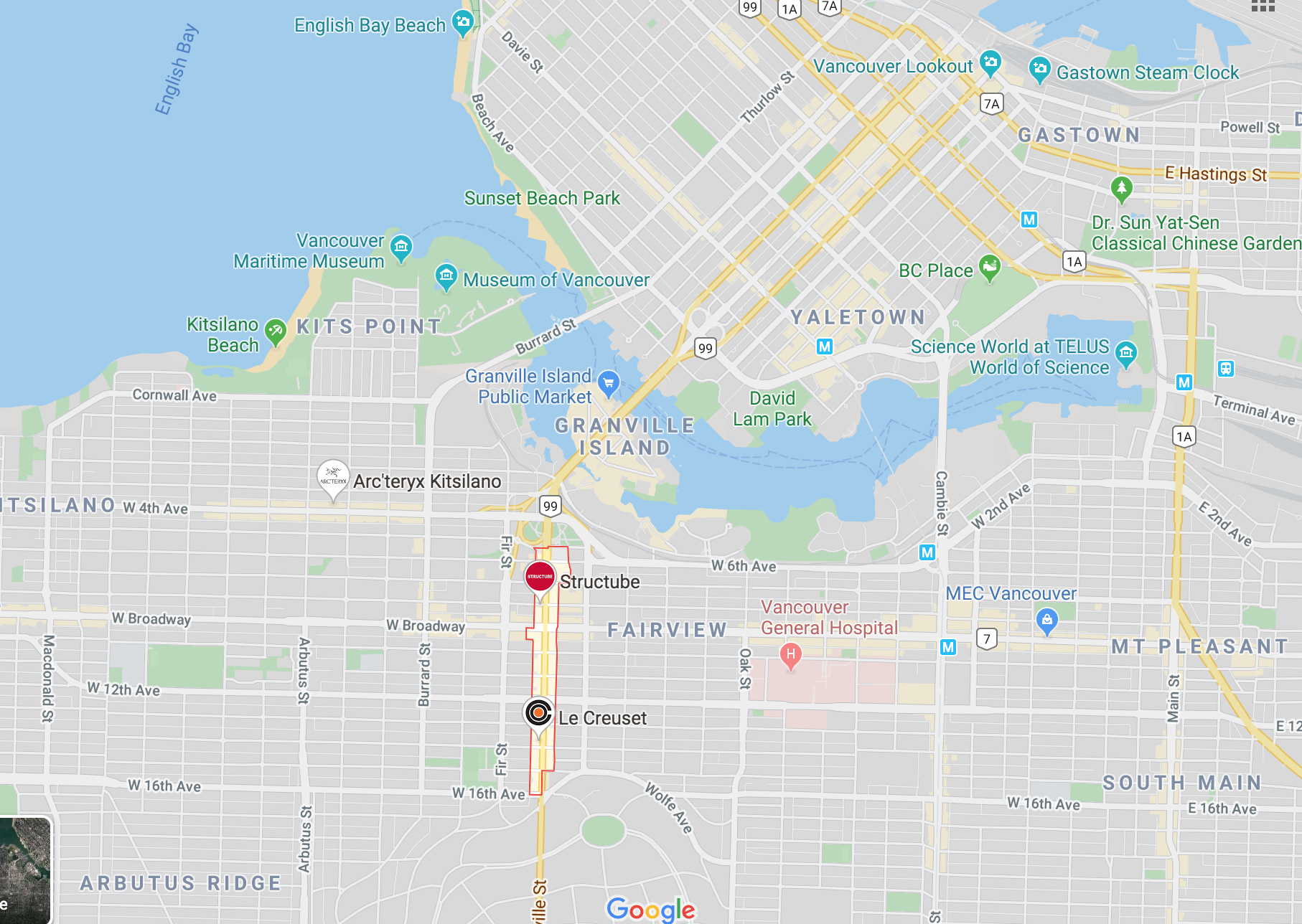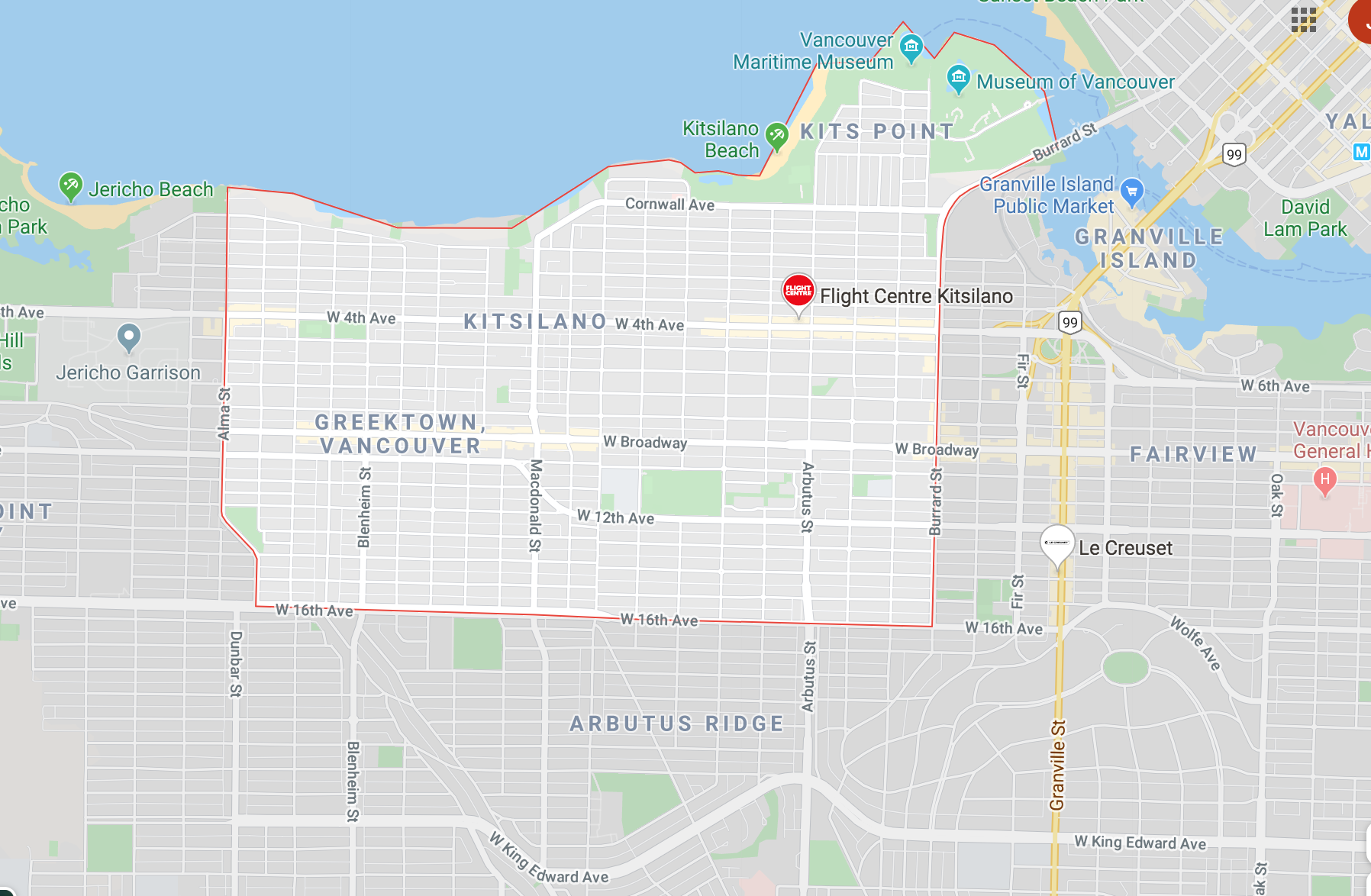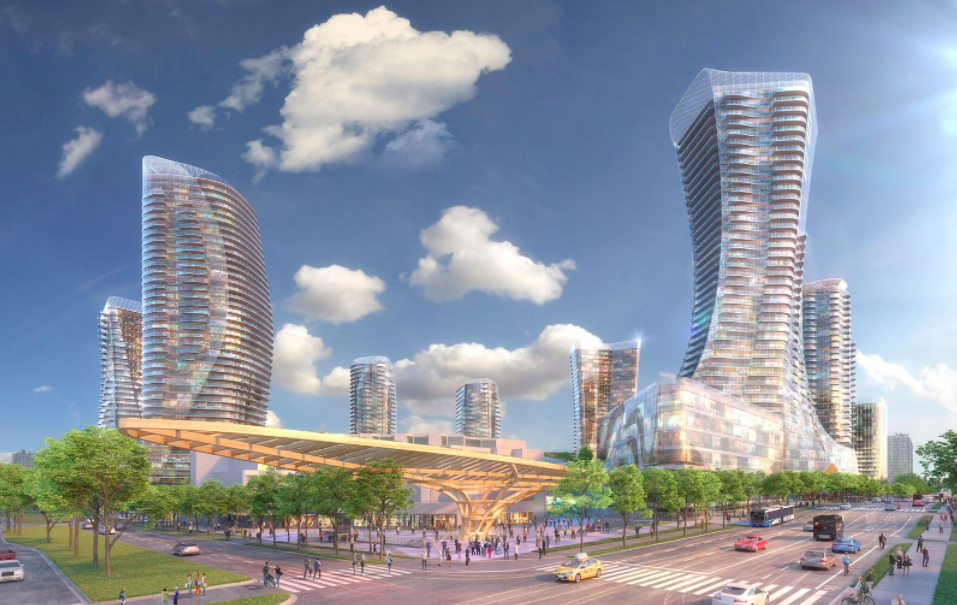JLL Report Outlines Current and Future Retail Growth in Vancouver
/west 4th ave, vancouver. photo: tourism vancouver
By Mario Toneguzzi
With the Vancouver area projected to add nearly one million more people by 2041, increasing density will open opportunities for retailers and landlords, says a new report by commercial real estate firm JLL.
“Bounded by mountains and the Pacific Ocean, Vancouver stands to benefit from high-density urban retail. After the metro area ran out of development sites, landlords began redeveloping existing areas, particularly low-density shopping centres and their adjacent parking lots,” says the report.
“At the same time, Vancouverites are increasingly seeking communities where they can live, work, and shop. This demand has been met by intensification projects that deliver purpose-built rental units and condos, as well as substantial amounts of retail and office space along strategic transit corridors.”
south granville, vancouver. photo: jll report
south granville, vancouver. photo: jll report
Currently, downtown Vancouver and surrounding neighbourhoods, including Kitsilano and South Granville, are the densest areas in the city, some equaling Tokyo’s population density, says the report. The JLL study outlines that Vancouver’s high-trafficked retail streets – Robson, Alberni, West 4th, and Granville – present enticing opportunities for retailers and investors alike to benefit from high concentrations of potential shoppers.
robson street, vancouver. photo: jll report
robson street, vancouver. photo: jll report
Vancouver topped PricewaterhouseCoopers’ 2020 survey for overall real estate prospects by demonstrating strong space demands and diminishing vacancy rates.
“Vancouver (retail) reached the lowest vacancy rate in four years, even among major markets, at 1.3 per cent in the second quarter of 2019. Average rents have increased by almost 20 per cent since 2015. Inventory growth has slowed as several retail spaces have been demolished for redevelopments, but that should speed back up once renovated spaces go back on the market. Robson and Alberni Streets are among the most highly sought-after streets in North America,” says the JLL report.
Besides the overall population growth, another key driver of the retail market in the city is Chinese consumers who make up 20 per cent of the Greater Vancouver population and have a strong preference for luxury goods.
image: Holt Renfrew
“A 2019 study conducted by the market research firm Vivintel revealed that one in three Canadian consumers with Chinese heritage buys luxury brands to differentiate themselves from the rest of society, including 40 per cent who prefer to drive a luxury vehicle. Vancouver’s Holt Renfrew – Canada’s homegrown luxury retailer – is said to have the strongest sales performance among its eight stores. Recently renovated, its Vancouver store accepts Chinese payment methods such as AliPay, and spans 190,000 square feet over four levels, two of which are dedicated to exclusive personal shopping suites. In Greater Vancouver, nearly half a million people identify themselves as Chinese,” says JLL.
An influx of tourists has also driven the local retail sector, particularly those who are wealthy and purchase luxury goods. The relatively low value of the Canadian dollar has provided an incentive for foreigners to spend locally, adds the report.
Vancouver is a key retail hub in Canada. Many big-name brands have their roots in the West Coast city such as apparel brands Aritzia and lululemon, outdoor-wear MEC, RYU, Reigning Champ, and Arc’Teryx, and drugstores Pharmasave and London Drugs. Digitally native tailored suit brand Indochino, founded by students of the University of Victoria, established its head office in Vancouver. Other names include Article furniture, Save-on-Foods, Urban Barn, Purdy’s Chocolatier, Saje Natural Wellness, and House of Knives. Vancouver also has several successful national restaurant chains that were either founded or headquartered in the area — The Keg, Earl’s, Joey, Cactus Club, and the Donnelly Group, among others.
image: arc’teryx
photo: saje natural wellness
cactus club cafe, burrand landing, vancouver. photo: burrand landing
“Back in the day, Best Buy Canada, Costco, LUSH Fresh Handmade Cosmetics, and HSBC Bank Canada established their first Canadian outposts in Vancouver. More recently, retailers from all over the world are choosing Vancouver as they expand globally. Europe: Stefano Ricci, Graff, Patek Philippe, Hublot, La Maison Valmont, Catimini, Brunello Cucinelli, Dior, Jaeger LeCoultre. Asia: Miniso, Mumuso, Douchanglee, Lao Feng Xiang, Lemongrass House. USA: Kohler, Clinique, Filson.
Vancouver has also been Western Canada’s first location for several luxury retailers. That’s been the case for French jeweller Van Cleef & Arpels, Swiss watch brand IWC Schaffhausen, and German accessory brand Montblanc,” reports the study.



The report says the sheer magnitude of Vancouver’s future population growth will require the construction of 400,000 new homes.
“Vancouver has encouraged landlords to use their properties more efficiently by adopting property tax assessments based on highest and best use. A property that is not currently built out to its maximum use or density now carries the cost of an assessment as if it were fully developed,” says the JLL report.
“As a result, developers and landlords have taken the opportunity to rebuild old and underutilized prime real estate and expand their retail offer. Demolitions peaked in 2019, and more landlords have included demolition clauses in leasing agreements, making them more adaptable to the time frame of developers. There is indeed considerable room for more retail space in the metro area. Per a 2018 study from Altus Group, Vancouver’s shopping centre inventory per capita is 25 per cent lower than the provincial average and 12 per cent lower than the national average.
rendering of oakridge centre. rendering: wonderwall
“With the continued pressure for growth, Vancouver will have to become even denser by redeveloping projects. Consistent with this, several densification projects have emerged across the region including Amazing Brentwood, Oakridge Centre, and Metrotown. One of the largest redevelopment projects in the area, Oakridge Centre is well positioned next to Metro Vancouver’s Canada Line Skytrain rapid transit system. Property owner QuadReal Property Group is adding approximately one million square feet of retail, 430,000 square feet of office space, and 2,600 residential units within 10 towers and four mid-rise buildings over the next five to seven years.”
Mario Toneguzzi, based in Calgary has 37 years of experience as a daily newspaper writer, columnist and editor. He worked for 35 years at the Calgary Herald covering sports, crime, politics, health, city and breaking news, and business. For 12 years as a business writer, his main beats were commercial and residential real estate, retail, small business and general economic news. He nows works on his own as a freelance writer and consultant in communications and media relations/training. Email: mdtoneguzzi@gmail.com




















![Retail-insider-NRIG-banner-300-x-300-V01-3[2].jpg](https://images.squarespace-cdn.com/content/v1/529fc0c0e4b088b079c3fb6d/1593476525034-QRWBY8JUPUYFUKJD2X9Z/Retail-insider-NRIG-banner-300-x-300-V01-3%5B2%5D.jpg)
![Retail-insider-NRIG-banner-300-x-300-V01-2[2].jpg](https://images.squarespace-cdn.com/content/v1/529fc0c0e4b088b079c3fb6d/1593476491497-W6OZKVGCJATXESC9EZ0O/Retail-insider-NRIG-banner-300-x-300-V01-2%5B2%5D.jpg)
![Retail-insider-NRIG-banner-300-x-300-V01-4[2].jpg](https://images.squarespace-cdn.com/content/v1/529fc0c0e4b088b079c3fb6d/1593476508900-TJG5SNQ294YNOCK6X8OW/Retail-insider-NRIG-banner-300-x-300-V01-4%5B2%5D.jpg)
The iconic US-based retailer is looking to expand into new Canadian markets coast-to-coast.